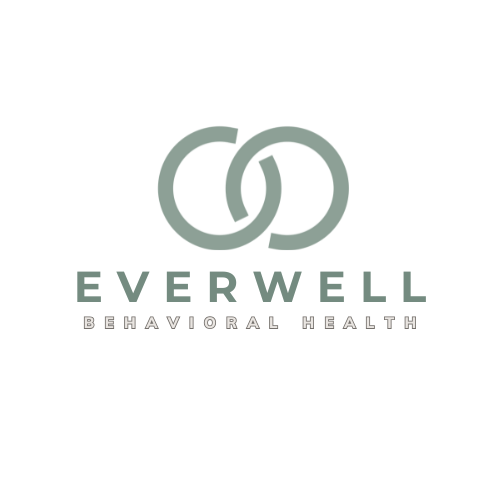let’s get your nights back.
Therapy for Insomnia (CBT-I)
Serving women in Wayne, PA, the Main Line, and Across Pennsylvania, New York, and all PSYPACT States.
When sleep is unpredictable, so is everything else.
And it’s not just about the nights.
Insomnia messes with your focus at work.
It makes small parenting moments feel like uphill battles.
It chips away at your patience, your mood, your resilience.
It makes your body feel heavier, achier, more reactive.
It distorts your self-worth—like you’re failing at something basic.
Sleep becomes the center of everything:
You’re constantly adjusting plans, worrying about how you’ll function,
doing mental math to figure out how bad tomorrow will feel.
It’s exhausting. And it’s lonely—because most people don’t get it.
But insomnia isn’t something you have to just power through.
It’s treatable. And you don’t have to figure it out alone.
You go to bed exhausted. But your brain won’t shut off.
You toss, turn, check the time. Again.
You finally fall asleep—only to wake up at 3am, wired.
Some nights you get a few broken hours. Some nights, nothing at all.
You’ve tried the sleep hygiene tips. The apps. The supplements.
And still—every night feels like a gamble.
CBT-I: The Gold Standard Therapy for Insomnia
Cognitive Behavioral Therapy for Insomnia (CBT-I) is the first-line, evidence-based treatment for chronic insomnia.
It’s short-term, structured, and proven to work — even if you’ve struggled for years.
CBT-I helps you:
Break the mental loop and sleep anxiety spiral
Reset your body’s natural sleep drive
Replace coping habits that accidentally keep you awake
Regain trust in your ability to sleep — without needing medication
Most people start to see improvements within 4–6 weeks.
In therapy, we’ll work on:
Breaking the mental loop
Address racing thoughts, anxiety about sleep, and the fear spiral that kicks in when you’re awake at 2am.Resetting your sleep drive
Learn how to rebuild natural sleep pressure so your body wants to sleep again—and actually knows how.Rewiring unhelpful habits
We’ll identify the things you’re doing to “cope” with poor sleep that might actually be keeping it going—and replace them with tools that work.Reclaiming your days
As your sleep improves, we’ll focus on building back structure, pacing, and confidence in your ability to function—without dread.Getting support that fits your life
Whether you’re a parent, caregiver, high-functioner, or all three, we’ll tailor this process to your real-world constraints.
What life can start to feel like:
Falling asleep without the mental battle
Staying asleep more often, and getting back to sleep when you wake up
Feeling sharper and more present during the day
Not panicking when bedtime rolls around
Having the energy to show up for work, family, and yourself
Trusting your body to rest—without needing apps, meds, or rituals to "make it happen"
You don’t have to build your life around unpredictable sleep anymore. CBT-I is a short-term, results-driven treatment, built to work without relying on medication.
Therapy for insomnia can help you…
-
And why what you’ve tried before (melatonin, magnesium, sleep hygiene) didn’t
-
One that works even if you’re caregiving, sick, stressed, or sharing a bed.
-
Know what to do when you wake up at 3am—without spiraling.
-
So you can fall asleep without overthinking every sensation.
-
Hint: This one’s a game changer.
-
Even the ones that feel helpful in the moment—like scrolling, researching, or “trying harder” to fall asleep.
-
Tools backed by science, not just sleep hygiene checklists.
Why Work With Me
I specialize in treating insomnia in women, especially when it’s tangled up with stress, anxiety, chronic illness, or hormonal shifts.
I work with women who are tired of powering through on broken sleep.
If you’re in Wayne, PA, the Main Line, Philadelphia, New York, or any PSYPACT state, we can work together via secure telehealth.
If you’re on sleep medication, we can coordinate with your prescriber for a safe taper — but it’s never required.
Frequently asked questions about insomnia therapy
FAQs
-
The gold standard treatment for chronic insomnia is Cognitive Behavioral Therapy for Insomnia (CBT-I). It’s a short-term, highly effective approach that helps you retrain your brain and body to fall asleep faster, stay asleep longer, and feel more rested. Unlike sleep medications, CBT-I addresses the underlying patterns that keep you stuck in poor sleep. Learn more.
-
CBT-I is a structured, evidence-based protocol specifically designed for sleep issues. It’s not just talking about your stress — it’s a step-by-step method to help you change the thoughts, behaviors, and habits that interfere with sleep. Sleep therapy may include relaxation tools or sleep hygiene tips, but CBT-I goes deeper to create lasting change. Learn more.
-
Not necessarily. Many people begin insomnia therapy while still taking sleep aids. If you’re interested in tapering off medication, we can talk with your prescribing provider and make a gradual, supported plan. But that’s never a requirement. Learn more.
-
Absolutely. Many of my clients are high-functioning women navigating stress, caregiving responsibilities, perimenopause, or chronic illness — all of which can disrupt sleep. CBT-I is designed to work even when sleep problems are connected to other life stressors. Learn more.
-
Most people begin noticing changes within a few sessions. A full course of CBT-I therapy typically takes 6–8 sessions, though we’ll tailor the pace to your needs. You don’t have to be in therapy forever to sleep better. Learn more.
-
That’s one of the most common things I hear. If you’ve already tried sleep hygiene, meditation apps, supplements, and still find yourself wide awake at 2 AM — insomnia therapy might be the missing piece. It’s designed for people who feel like nothing else has worked. Learn more.




